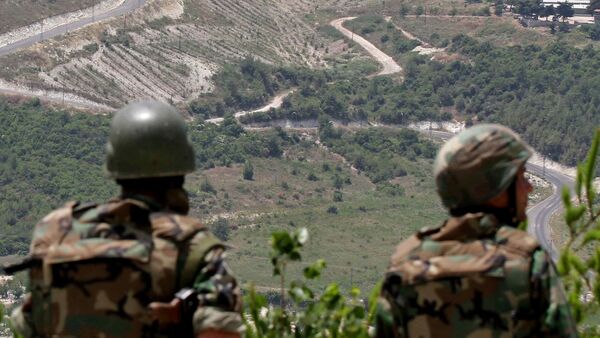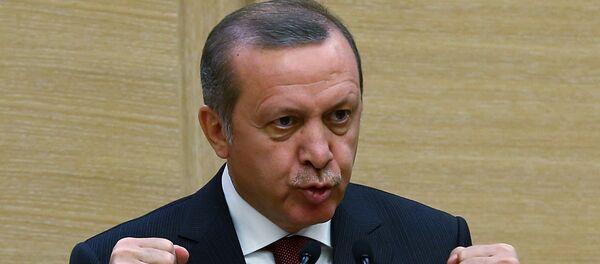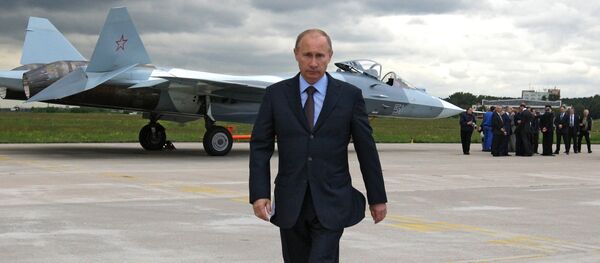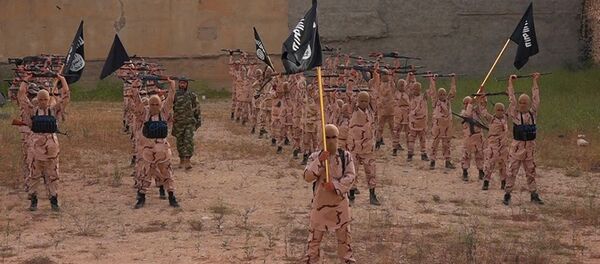By 2011, however, certain preparations had been made, including transferring arms and terrorists from Benghazi and Eastern Europe to Turkey, where the would-be fighters were armed, trained and sent to commit "jihad" in Syria, Bangkok-based geopolitical analyst Tony Cartalucci narrates in his recent piece for New Eastern Outlook.
"When Russia entered the conflict, the calculus changed dramatically… Quickly the true source of ISIS' [Daesh's] fighting capacity — supply lines stretching out of NATO-member Turkey's territory, long protected by NATO itself since the conflict began — came under threat. Russian warplanes are now flying sorties directly along the border, decimating ISIS-bound convoys long before delivering their supplies, weapons, and fresh fighters," Cartalucci emphasizes.
The end is nigh and NATO countries are unwilling to ultimately lose initiative as well as their "assets" in Syria. Thus far, they have launched a series of provocations in order to disrupt the Russo-Syrian rapid advance, according to the geopolitical analyst.
"Turkey's downing of a Russian Su-24 bomber inside Syrian airspace, with Turkish-backed terrorists then gunning down one of the parachuting pilots — a blatant war crime — before ambushing a subsequent rescue mission which left a Russian Marine dead, was the first major provocation," Cartalucci narrates, adding that it is clear that Turkey would have never dared to make such a brazen move without Washington's support.
The second provocation has been carried out in Iraq by Ankara: Turkey moved troops and heavy weapons into northern Iraq, despite the vocal displeasure of Baghdad.
According to Cartalucci, the move is a "beta test" for the US infamous "safe zone" concept. Washington has sought to implement a number of "buffer" or "safe" zones in Syria in order to balkanize the country.
The third provocative action has been reportedly conducted by the US Air Force near Deir ez-Zor city. US planes have purportedly bombed a Syrian Arab Army camp in the region killing several Syrian military servicemen. According to unconfirmed reports, the airstrikes were followed by a coordinated Daesh attack.
"Whether reports of a counterattack are true or not, the US strikes appear to have happened. While the US denies that carried out the strikes, it has refused to coordinate with the Syrian Arab Army throughout its illegal operations in Syrian airspace," Cartalucci underscores.
In a word, what is happening now on the ground in Syria is an escalation toward direct military confrontation between NATO and Syria, including Syria's allies.
However, neither Damascus, nor Moscow wants to escalate the situation. Remarkably, after the treacherous Ankara's attack on the Russian Su-24, the Kremlin stated clearly that there would be "no war" with Turkey. The main aim of the Russo-Syrian alliance is to eliminate the terror threat in Syria as well as to protect the integrity and sovereignty of the Syrian state.
Cartalucci believes that by carrying out their joint military operation and restoring order across all of Syria's territory, Russo-Syrian forces would accomplish their task and halt the US-led "creeping war" aimed at destabilizing and partitioning of Syria.




